Q
What Is the Fuel Consumption of Jaecoo J7?
The fuel consumption of different versions of the Jaecoo J7 varies. The 2024 Jaecoo J7 2WD and 2024 Jaecoo J7 AWD run on gasoline, and their official combined fuel consumption is 7L/100km. The 2025 Jaecoo J7 PHEV 2WD uses gasoline plug - in hybrid as fuel, and its official combined fuel consumption is 4.7L/100km. Fuel consumption can be affected by various factors, such as driving style, road conditions, and vehicle load. Gentle driving, reasonable speed control, and avoiding sudden acceleration and braking can all help reduce the actual fuel consumption. Knowing this information can help you better estimate the vehicle's fuel costs and choose a model that suits your needs.
Special Disclaimer: This content is published by users and does not represent the views or position of PCauto.
Related Q&A
Q
Does the Jaecoo J7 have memory seats?
As an SUV targeting the high - end market, the Jaecoo J7 is indeed equipped with a memory seat function. This configuration can store the preferred settings such as seat positions and rear - view mirror angles of different drivers, making it convenient for quick adjustment when multiple people take turns driving. It is especially suitable for family users or business scenarios. In Malaysia's hot weather, its comfort can be further enhanced when combined with the ventilated seat function.
Memory seats are usually linked with configurations such as electric adjustment and lumbar support, which is a common technology in luxury cars. High - end versions of competing models in the same class, such as the Honda CR - V and Toyota RAV4, also offer similar functions. It should be noted that there may be differences between different model years or configuration versions. It is recommended that consumers check the specific configuration list on the official Jaecoo Malaysia website before purchasing or visit an authorized dealer to experience the actual vehicle functions.
This kind of intelligent configuration is gradually being introduced from luxury cars to mainstream models, reflecting the digital development trend of the automotive industry. In the future, more advanced technologies such as facial recognition or remote preset via mobile apps may be integrated.
Q
What fuel does the Jaecoo J7 use?
As an SUV targeting young urban families, the Jaecoo J7 in the Malaysian market uses RON95 gasoline, which is the most common fuel type locally. It fully meets the infrastructure of Malaysian gas stations and driving needs. The 1.6TGDI turbocharged engine equipped in this model has been specifically tuned to fully leverage the anti - knock characteristics of RON95 gasoline. It not only ensures a power output of 156 horsepower but also takes fuel economy into account, making it very suitable for Malaysia's hilly terrain and congested urban roads.
It's worth mentioning that although RON97 gasoline can theoretically bring smoother combustion efficiency, considering the Malaysian government's continuous subsidy policy for RON95 and the limited difference in actual driving experience between the two, using RON95 is undoubtedly a more cost - effective choice. For Malaysian consumers who care about car - maintenance costs, regularly using the fuel additives recommended by the original manufacturer can effectively keep the fuel injectors clean. This kind of maintenance method is more cost - effective than blindly pursuing high - octane fuel.
In addition, Malaysia's hot and humid climate poses a challenge to the fuel system. It is recommended that car owners choose gas stations with a good reputation as much as possible to avoid poor - quality gasoline with excessive moisture content, which may affect the engine's lifespan.
Q
What is the towing capacity of the Jaecoo J7?
As an SUV designed mainly for urban light off - road driving, the towing capacity of the Jaecoo J7 needs to be evaluated in combination with its power and body structure. Although the official hasn't released the specific data yet, referring to SUV models in the same class equipped with 1.6T turbocharged engines (such as the Chery Tiggo series), it is estimated that its towing capacity is between 1,200 and 1,500 kilograms. It is suitable for towing leisure equipment like small yachts, camping trailers, or motorcycles.
For Malaysian users, it's necessary to pay attention to the local regulations regarding vehicle towing. For example, in Peninsular Malaysia, the total weight of the trailer must not exceed 1.1 times the unladen weight of the towing vehicle, and a special hitch and braking system need to be installed. If you often have towing needs, it is recommended to upgrade the cooling system and regularly check the transmission oil temperature, as the tropical climate may increase the engine load.
In addition, the J7's intelligent four - wheel drive system and high - rigidity body design can improve towing stability. However, in actual operation, sudden acceleration or overloading on steep slopes should still be avoided to ensure safety. The towing data of other brands like Proton X90 or Toyota Fortuner can also be used as a horizontal reference, but ultimately, the information on the Jaecoo Malaysia official website or from dealers should be the final reference.
Q
What is auto start stop on Jaecoo J7?
The Auto Start-Stop function of the Jaecoo J7 is an energy-saving technology. When the vehicle stops briefly (such as waiting at a red light or in a traffic jam), the system will automatically shut down the engine to reduce fuel consumption and emissions. When the driver releases the brake or steps on the accelerator, the engine will quickly restart to ensure a smooth drive. This function is particularly suitable for the common urban traffic congestion in Malaysia. It can not only reduce fuel consumption but also decrease exhaust emissions, which is in line with the environmental protection trend.
It should be noted that the Auto Start-Stop function will automatically pause when the battery is low, the air - conditioning is operating at a high load, or the engine has not reached the operating temperature, to ensure driving comfort and vehicle performance. Similar technologies have been widely used in many brand models and have become one of the important means for modern cars to improve fuel economy. Drivers can manually turn off this function through a button, but long - term use can significantly save fuel costs, especially in busy traffic areas like Kuala Lumpur.
Q
What is the safety rating of the Jaecoo J7?
The Jaecoo J7 has a good safety performance. It comes standard with a host of safety features. For example, ABS anti - lock braking system and electronic stability control can enhance the vehicle's stability during emergency braking and on complex road conditions. The seat - belt reminder covers all seats, constantly reminding passengers and drivers to fasten their seat belts. Functions such as blind - spot monitoring, lane departure warning system, autonomous emergency braking/active safety system, and forward collision warning are helpful in detecting potential hazards in advance and avoiding collisions. The vehicle is also equipped with eight airbags, including those for the driver, front - passenger, front - side airbags, head airbags (curtains) for the front and rear rows, and knee airbags. These can effectively protect the people inside the vehicle in the event of a collision. In addition, the ISOFIX child - seat anchor points make it easy to install child seats, ensuring the safety of children in the car. Although there is no specific star - rated safety rating, these abundant safety features can provide reliable safety protection for passengers and drivers.
Q
Is the Jaecoo J7 water resistant?
As an SUV mainly targeting urban light off - roading, the water - proof performance of the Jaecoo J7 is mainly manifested in daily wading scenarios rather than professional diving. Official data shows that its wading depth can reach approximately 600mm, which is sufficient to handle the common rain - flooded roads in Malaysia. This is due to its optimized air intake position and chassis sealing design. However, it should be noted that long - term immersion may still cause damage to the electrical circuits.
For Malaysian consumers, when driving during the rainy season, more attention should be paid to the vehicle's water - proof performance and daily maintenance. For example, regularly check the door seals and chassis drain holes to prevent sand and mud from clogging and affecting the water - proof effect. At the same time, it is recommended to check the braking system in time after wading.
It's worth noting that the water - proof design of most city SUVs on the market is mainly for short - term wading. If you often encounter deep - water areas, you should consider modifying professional configurations such as a wading snorkel. However, this will involve changes to the warranty terms, and it is recommended to consult through official channels.
Q
What cars are similar to the Jaecoo J7?
As a luxury compact SUV, the Jaecoo J7's comparable models can be those in the same class with similar design styles, power configurations, and technological features. For example, the Chery Omoda 5, Proton X50, Haval Jolion, and Toyota Corolla Cross. These models all feature youthful designs, have similar body sizes (around 4.4 - 4.5 meters in length), offer turbo - charged engine options (such as 1.5T or 1.6T), and are equipped with intelligent connectivity systems and ADAS driving assistance features, making them suitable for the urban roads in Malaysia and family needs.
It's worth noting that the Jaecoo J7 stands out in its class with its emphasized "luxury" interior quality and unique exterior design. The Proton X50 has an edge in cost - effectiveness thanks to its local production and well - established after - sales network, while the Toyota Corolla Cross excels in brand reputation and hybrid technology.
If consumers prefer a higher ground clearance or a four - wheel drive version, they can also compare the Mitsubishi ASX or Mazda CX - 30, but the price may go up. It is recommended to take a test drive before purchasing a car. Pay special attention to the space comfort and warranty terms, as the tropical climate in Malaysia places high demands on the air - conditioning efficiency and the stability of the electronic system.
Q
Is Jaecoo J7 a 4x4?
The Jaecoo J7 isn't all 4x4 (four - wheel drive) models. This vehicle comes in multiple drivetrain versions. Among them, the Jaecoo J7 AWD version features four - wheel drive (4x4), which offers better passability and handling stability, making it suitable for dealing with complex road conditions. The Jaecoo J7 2WD version is front - wheel drive, mainly providing the power needed for daily city driving and may have an edge in fuel economy. Additionally, the Jaecoo J7 PHEV 2WD version is also front - wheel drive. It's a plug - in hybrid model, achieving a balance between power performance and energy conservation as well as environmental protection. Consumers can choose the appropriate Jaecoo J7 drivetrain version based on their actual needs, driving scenarios, budget and other factors.
Q
How many seats are in the Jaecoo J7?
As a new luxury intelligent SUV model, the Jaecoo J7 features a standard 5 - seat layout for its seating configuration. This can meet the daily travel or long - distance trip needs of most Malaysian families. The rear seats usually support proportional folding to flexibly expand the luggage space.
In terms of design, this car focuses on seating comfort. The seat materials may offer options like leather or high - grade fabric. Some versions may also be equipped with electric adjustment or heating functions to enhance the experience. For Malaysian consumers, a 5 - seat SUV is particularly practical for urban commuting and weekend self - driving tours. It can ensure sufficient seating space while avoiding the higher road tax costs associated with 7 - seat models.
In the same market segment, the 5 - seat layout is the mainstream choice. Models like the Honda CR - V and Toyota RAV4 adopt similar designs. However, the Jaecoo J7 strengthens its competitiveness through intelligent configurations and a luxurious feel. For example, it may be equipped with an immersive audio system or a panoramic sunroof. These details are quite appealing to Malaysian users who value a sense of technology and comfort.
If consumers need more seats, they can consider other 7 - seat models or MPVs under the brand.
Q
What size battery is in the Jaecoo J7?
As a newly launched SUV model in the Malaysian market, the Jaecoo J7 typically uses a mainstream 12V battery system. Specifically, the capacity might be a lead - acid battery ranging from 60Ah to 70Ah (the specific parameters should be subject to the official manual or dealer information). This type of battery can meet the daily starting and power supply needs of electronic devices.
The climate in Malaysia is hot and humid. It is recommended that car owners regularly check whether the battery electrodes are corroded and avoid long - term parking which may lead to battery discharge, so as to extend the battery life. If considering an upgrade in the future, enhanced batteries such as AGM or EFB can be selected. They are more heat - resistant and have better cyclic charging performance, but it is necessary to confirm the compatibility with the vehicle's electrical system.
In addition, some maintenance centers in Malaysia offer free battery testing services. Car owners can take advantage of these services to ensure that the vehicle's power system is in good condition.
Popular Cars
Model Year
Car Compare
Car Photo
Latest Q&A
Q
Does the 2019 Golf GTI have a timing belt or chain?
The 2019 Golf GTI uses a timing chain instead of a timing belt—a design that offers better durability and lower maintenance costs. Typically, a chain lasts as long as the engine itself and rarely needs replacement, whereas a belt requires inspection or replacement every 60,000 to 100,000 km. If neglected, a worn belt can snap and cause severe engine damage.
VW’s EA888 engine family has long relied on chain-driven systems, which are relatively quiet and highly reliable. That said, it’s crucial to periodically check the tensioner’s condition. Some earlier models experienced timing issues due to tensioner design flaws, but this was addressed in the 2019 version.
For performance enthusiasts, a chain system handles high-revving stress better, making it a common choice for hot hatches like the GTI. For daily driving, just stick to VW 50400/50700-spec oil as recommended in the manual—proper lubrication keeps the chain system healthy long-term.
One heads-up: If you hear noticeable metallic rattling near the front of the engine, have the guides or tensioner inspected ASAP. Unlike the telltale belt squeal before failure, this noise is a classic sign of chain-related wear.
Q
What is the recall on the 2019 GTI?
The 2019 Volkswagen Golf GTI was subject to a safety recall addressing two potential issues. First, the fuel pump control unit software could malfunction, potentially causing engine stalling in rare cases. Second, some vehicles might have rear suspension stabilizer link bolts that weren't tightened to specification, posing a loosening risk. Owners can visit authorized dealers for free software updates or bolt retightening.
These proactive recalls demonstrate Volkswagen's commitment to safety. Dealers often handle outstanding recall items during routine maintenance.
For performance-oriented models like the GTI, it's wise to go beyond recall checks. Pay close attention to the turbo system, DSG transmission fluid, and brake wear—these components endure more stress during spirited driving. If warning lights appear or you notice unusual noises, get a professional inspection promptly. Keeping the car in top shape ensures you can fully enjoy its dynamic capabilities.
Q
Does the 2019 GTI require premium gas?
The 2019 GTI does recommend using high-octane fuel (typically RON 95 or above). Its 2.0L turbocharged engine has a relatively high compression ratio, and premium gas ensures optimal performance while reducing knock risk. It also helps maintain engine cleanliness and long-term reliability.
While the car may tolerate lower-octane fuel (like RON 92), you’d see slightly reduced power output and fuel efficiency. Over time, it could also affect engine longevity. Turbocharged engines are particularly sensitive to octane ratings since turbos generate higher heat and pressure—high-octane fuel handles these conditions better.
Mixing different fuel grades occasionally won’t hurt, but sticking to the manufacturer’s recommendation is ideal. Also, periodic fuel additive treatments can help clean carbon buildup, especially for direct-injection engines.
One more thing: even with the same octane rating, fuel additive packages vary by brand. So, picking a reputable gas station matters too.
Q
How long will a 2019 GTI last?
The lifespan of a 2019 GTI largely depends on maintenance and driving habits. With regular oil changes, transmission fluid replacements, and avoiding aggressive driving, it can easily clock over 200,000 kilometers—or even more. Its 2.0T engine and DSG gearbox are proven combos, and as long as you stick to the factory service schedule, mechanical reliability won’t be an issue.
Just keep in mind: turbocharged engines demand extra care. Always use the right spec full-synthetic oil and monitor the cooling system. Climate plays a role too—hot, humid conditions mean paying extra attention to rubber seals and electronics. Every 50,000 km, have the timing chain and high-pressure fuel pump inspected (key items for turbos).
Driving style matters. Don’t redline it constantly, and let the engine warm up properly after cold starts. Rustproofing helps long-term durability, so regular underbody washes are smart. Nail these details, and this car’s built to last.
Q
How fast is the 2019 GTI?
The 2019 GTI truly delivers when it comes to performance. Under the hood lies a punchy 2.0-liter turbocharged four-cylinder, churning out 228 horsepower and 350 Nm of torque. Whether you opt for the engaging 6-speed manual or the lightning-fast 7-speed DSG, this hot hatch rockets from 0-100 km/h in just 6.3 seconds, with an electronically limited top speed of 250 km/h.
What really sets the GTI apart is its razor-sharp handling. The sport-tuned suspension and electronic differential lock work together to deliver precise steering and rock-solid cornering stability. It’s the perfect blend of everyday practicality and proper driver’s car thrills—a well-rounded hot hatch in every sense.
For enthusiasts, the GTI’s tuning potential is massive. Many owners go for ECU remaps or intake/exhaust upgrades to squeeze out even more power. Just remember to keep things street-legal—safety and compliance should always come first. Around here, these pocket rockets have a solid following, and it’s easy to see why.
View MoreRelated News

Jaecoo J7 VS Honda CR-V, which is the most worthwhile C-Segment SUV to buy
JamesNov 7, 2025
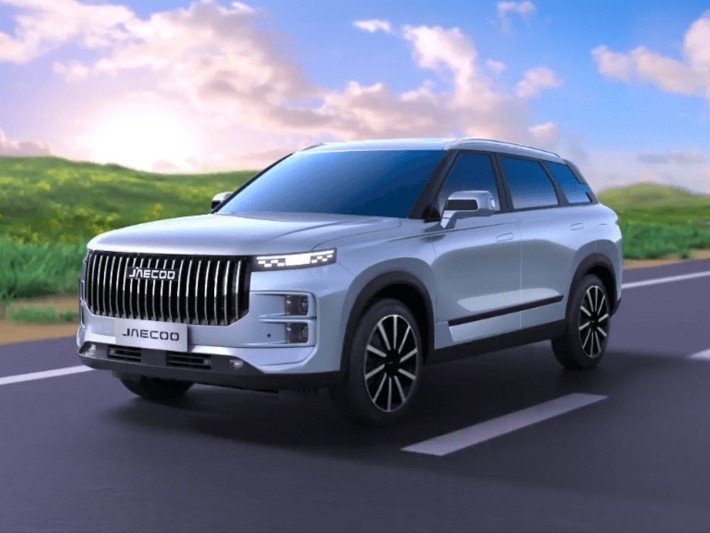
Jaecoo J7 Review: A Great-Value SUV That Delivers More Than Expected
AshleyJul 10, 2025
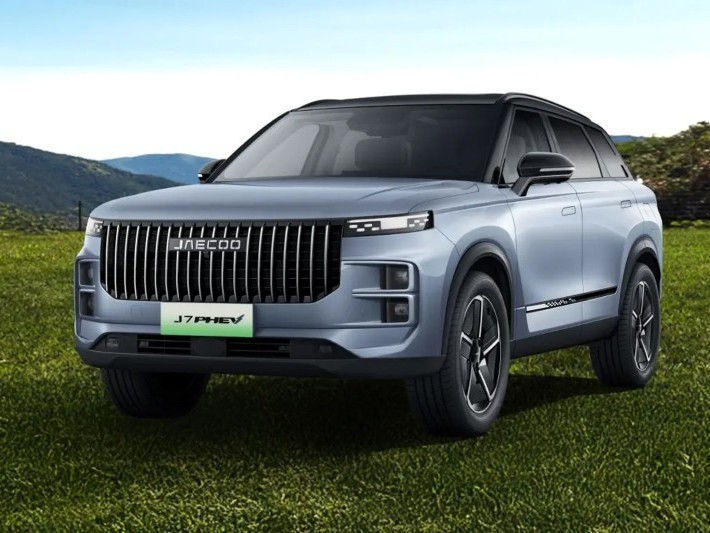
Jaecoo J7 Interior Design Unveiled: A Cabin Full of Luxury and Tech Vibes
LienJul 1, 2025
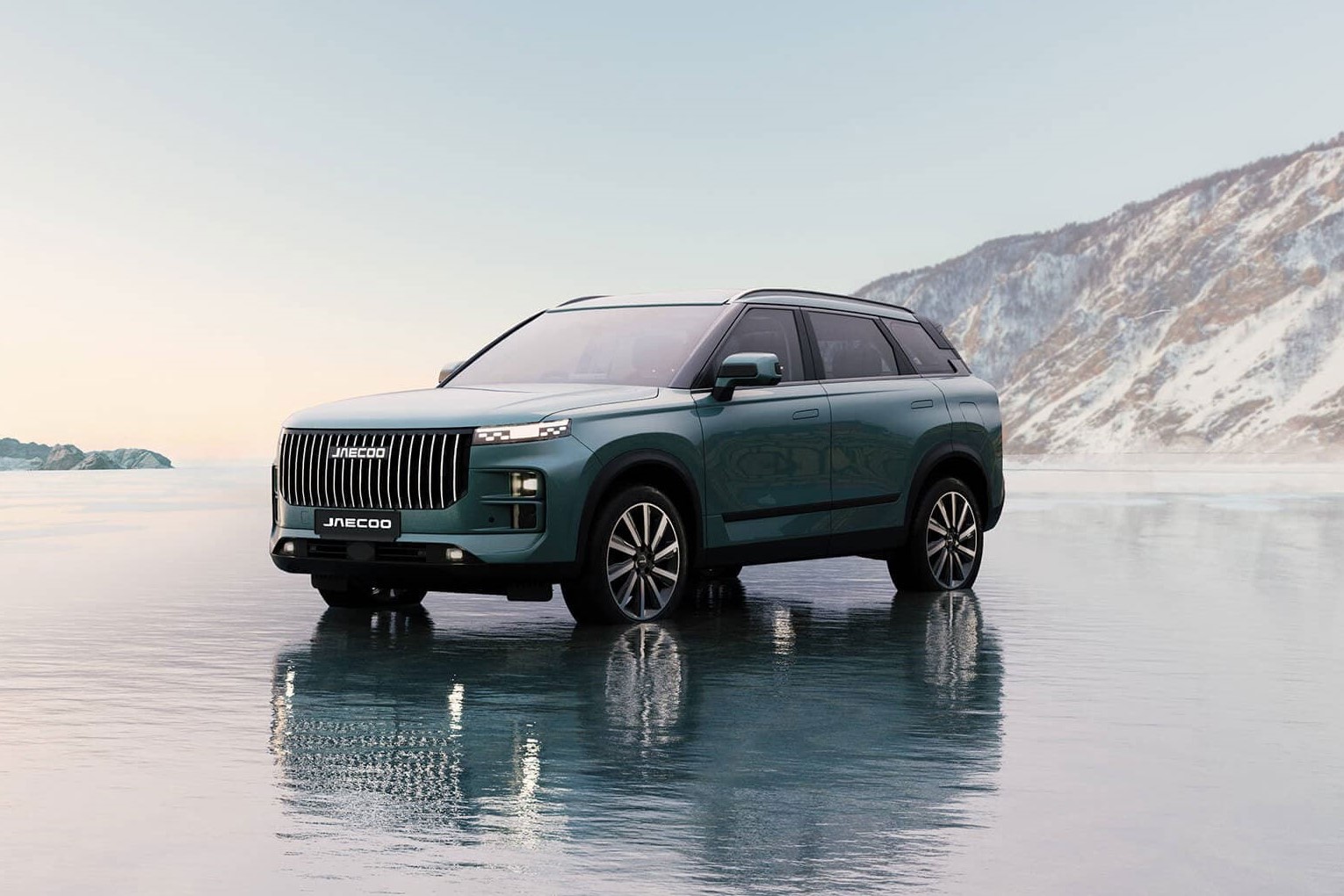
Jaecoo J7 Buyer's Guide: Models, Price & Best Pick for You!
RobertJun 10, 2025
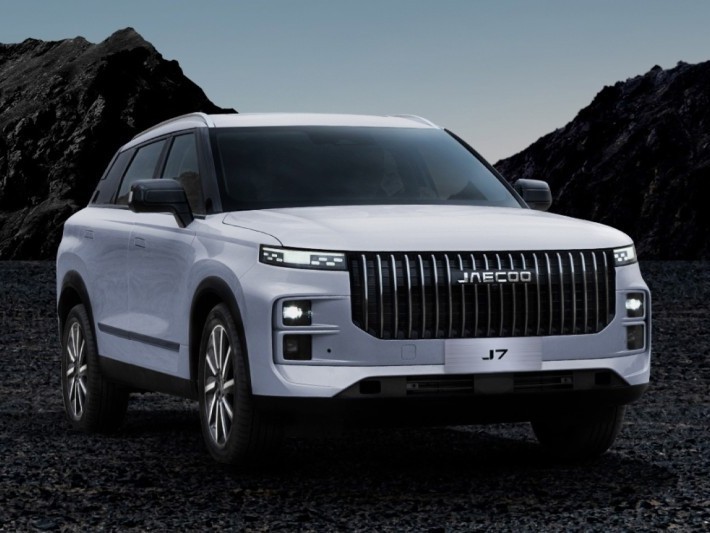
How Much Thought Went Into It? A Deep Dive Into Jaecoo J7's Design Details
MichaelApr 11, 2025
View More











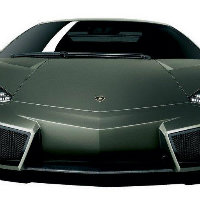
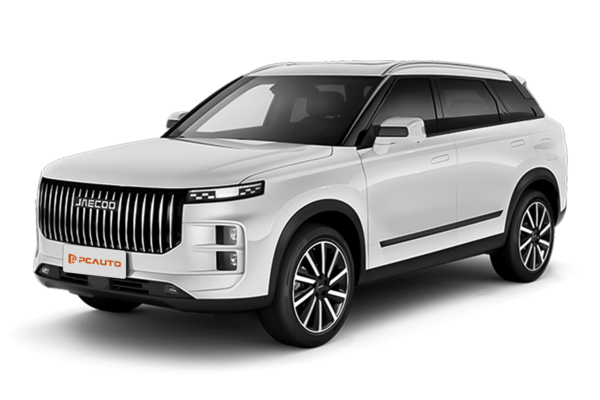
 Cars
Cars
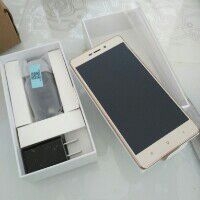



Pros
Cons